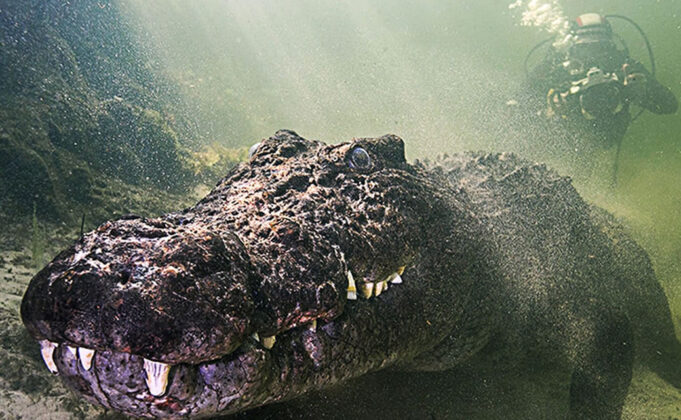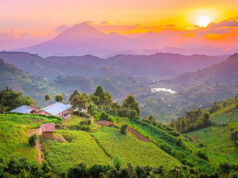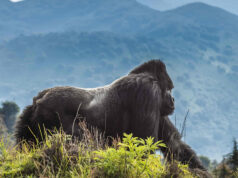A look at the first ever-study of crocodiles underwater: what lessons were learned during the making of the BBC documentary Swimming With Crocodiles and how could the lessons benefit the people of Botswana?
They are called Javier, Mr T, Tutwana and Mawasi and they can be found in the crystal clear waters of the Okavango Delta in Botswana. They were the stars of a recent documentary presented by Ben Fogle but don’t let the cuddly names fool you – Javier & Co. are Nile crocodiles; opportunistic creatures whose powerful jaws can trap prey such as fish, wildebeest and, of course, humans with a vice-like grip.
They are also magnificently beautiful creatures as the programme, entitled Swimming With Crocodiles, proved. These brooding reptiles can grow to a length of six metres, sometimes weigh as much as a car and have been known to live up to 100 years long.
About 80 per cent of their long lives are spent submerged under water yet amazingly they don’t have gills; despite this they can spend up to 45 minutes underwater at any time. They also spend a considerable time basking in the sun on the Delta’s many sand banks (being reptiles, they rely on external heat sources to produce their own body heat).
That said, the purpose of Swimming With Crocodiles was to observe crocodile in their natural habitat; resting in lairs and walking on the sandy river bed beneath the delta’s mysterious waters. And so Fogle donned a diving suit to join a small team of expert divers and scientists and participate in the first study of the crocodile underwater.
As one of the divers said before the first dive: “We know what the crocodile does but we don’t know why it does it.”
The programme wanted to test out how good the crocodile’s eyesight was – the hypothesis was that crocodile frequently don’t attack humans in the water because they merely think that they are other crocodiles. Finding out where crocodile prefer to hide underwater was also uppermost in the divers’ minds.
It was discovered that the crocodile can identify objects from about 80cm away, and that they prefer hiding in warm waters with weaker currents. This discovery could reduce the risk of crocodile attacks on the humans who live and work in the Okavango Delta area.
Botswana ranks as one of the most popular African safari destinations. The chance to view crocodiles in their natural habitat is one of the reasons brave travellers continue to embark on Okavango Delta safaris
Everyone in the Delta knows someone who has been attacked by a crocodile but fortunately the creature remains a protected species. Without the crocodile the food chain would be snapped – the crocodile eats catfish which eats bream; a vital source of food for the local people. If there were no crocodile there would be far less bream to eat.
The Nile Crocodile’s importance to the local food chain cannot be over-stated – it can be found throughout the Okavango Delta: a massive wetland which is the size of Switzerland. It can also be sighted as far north as Egypt and exists in isolated populations in Madagascar and Senegal.
Of course, its kingdom does not extend as far east as Australia – the place featured in Swimming With Crocodiles’ second episode in which Ben Fogle gets close to the saltwater crocodile. Fogle is sure to find that the ‘salty’ is far larger and more aggressive than the Nile croc; tune in to find out how he gets on!









